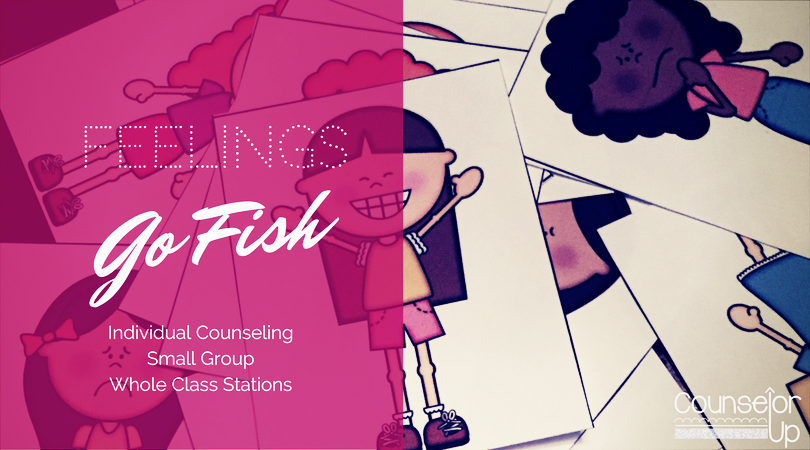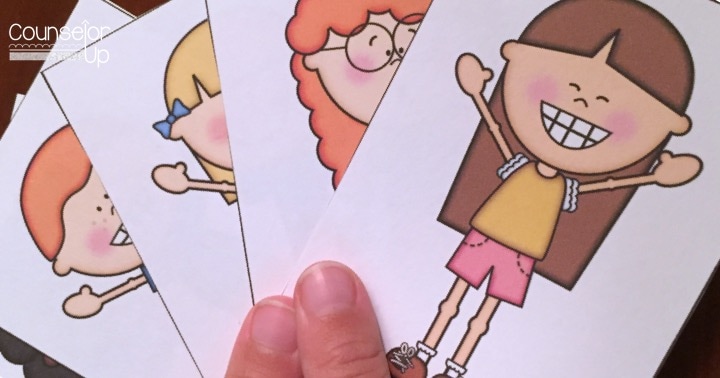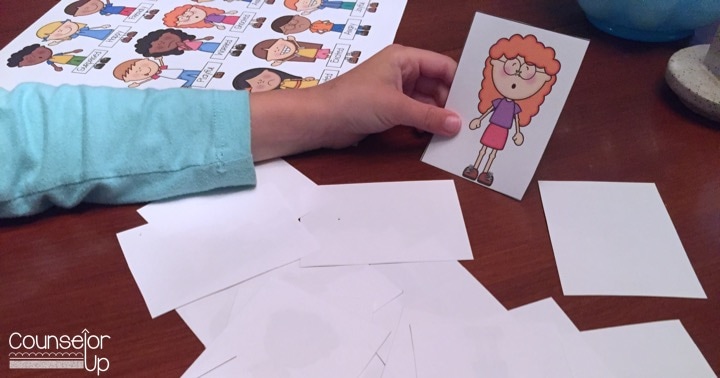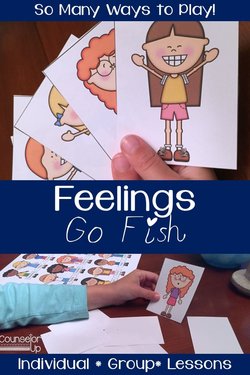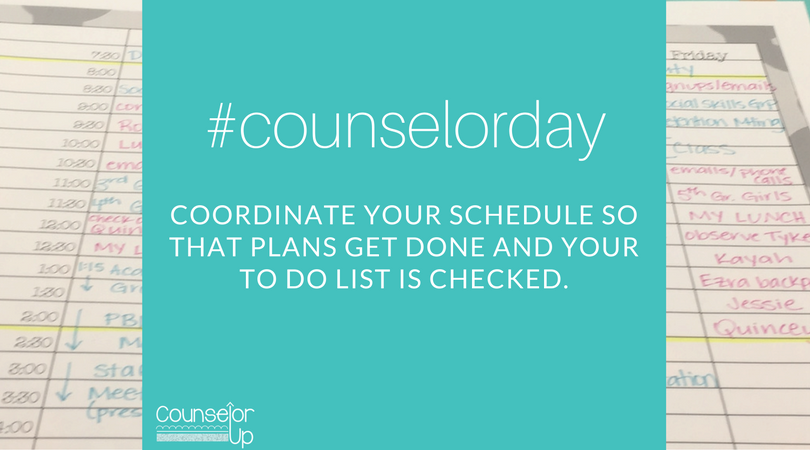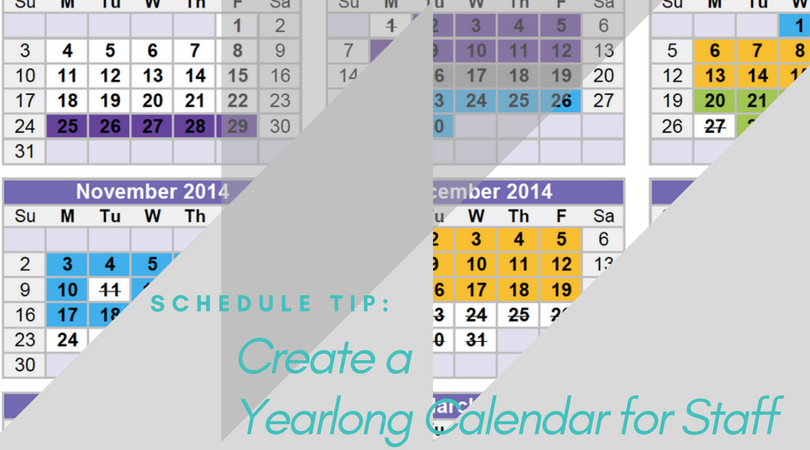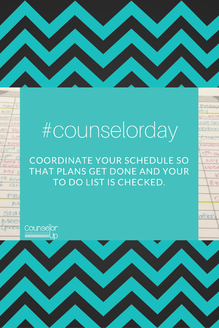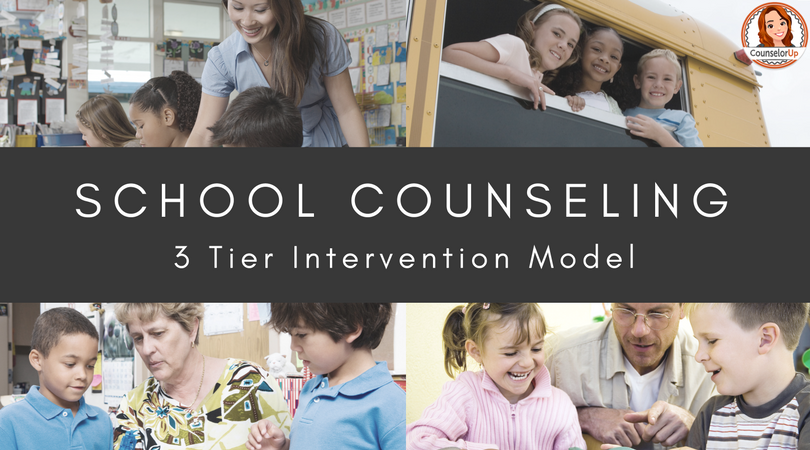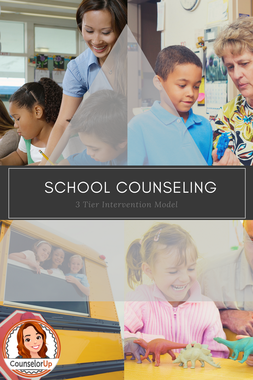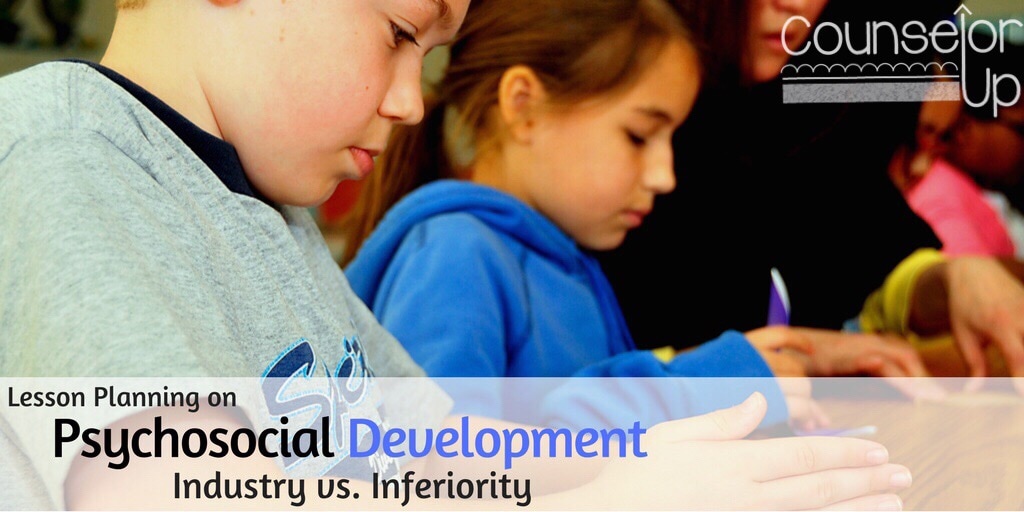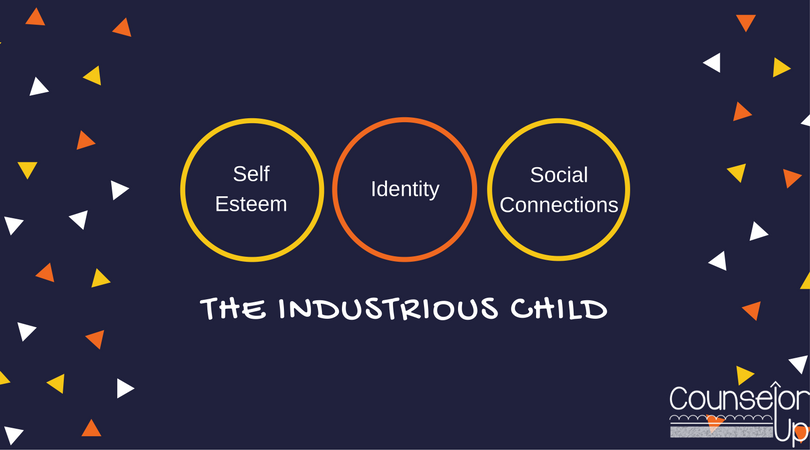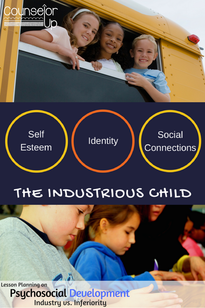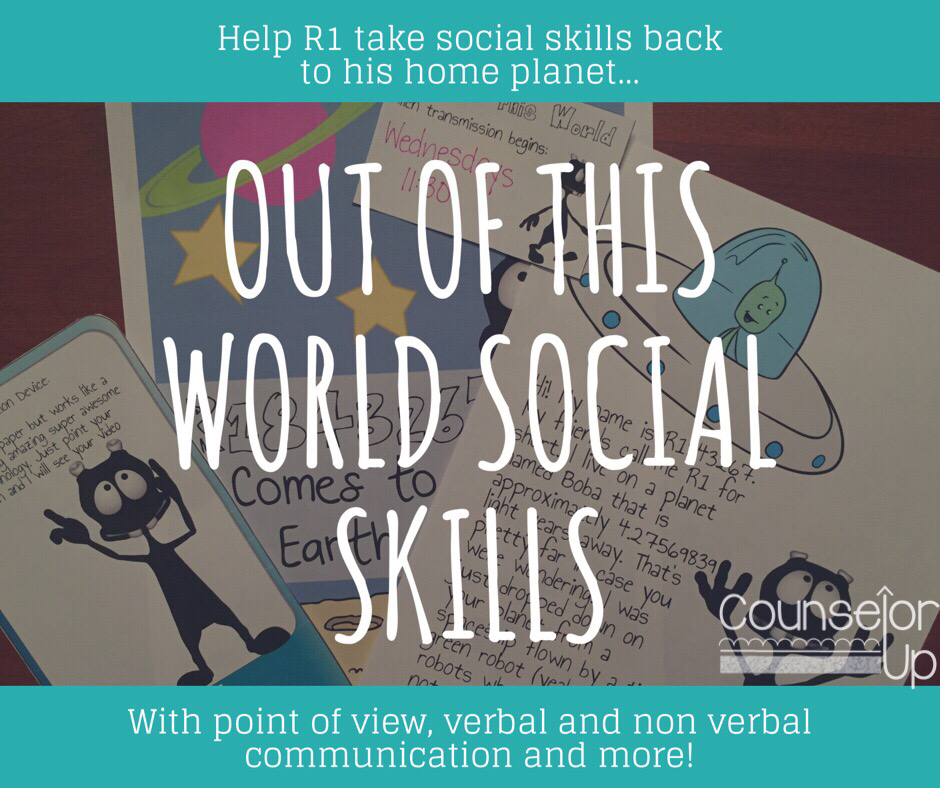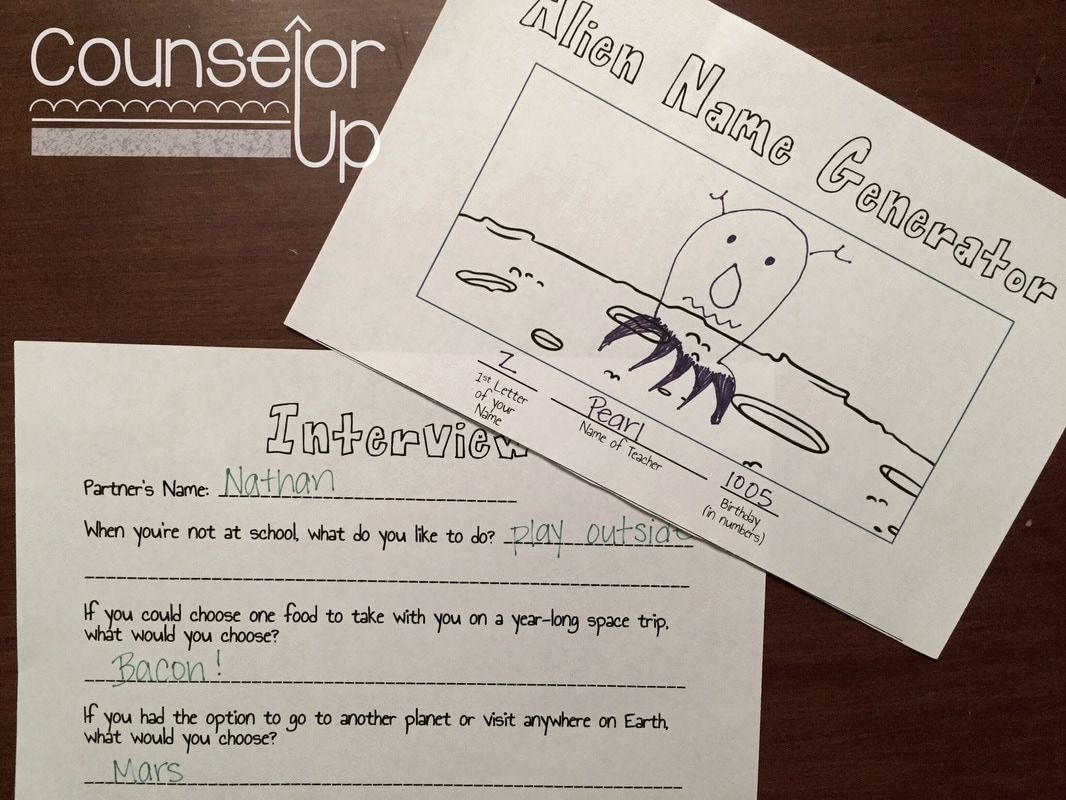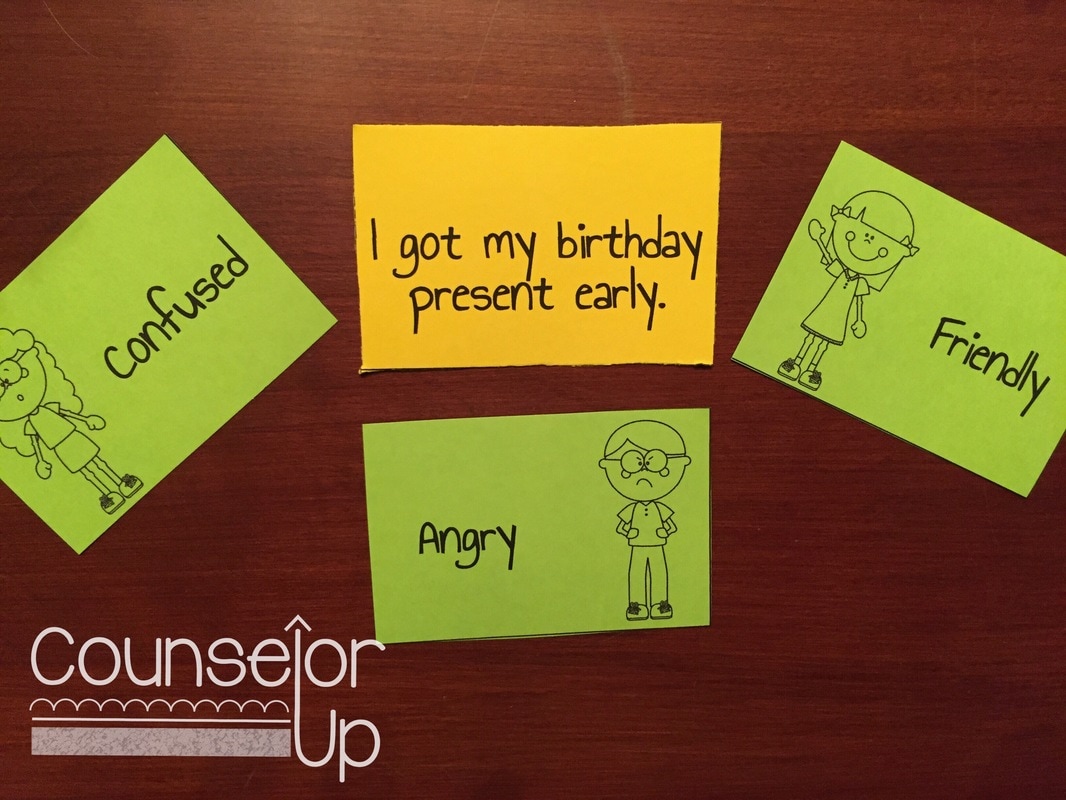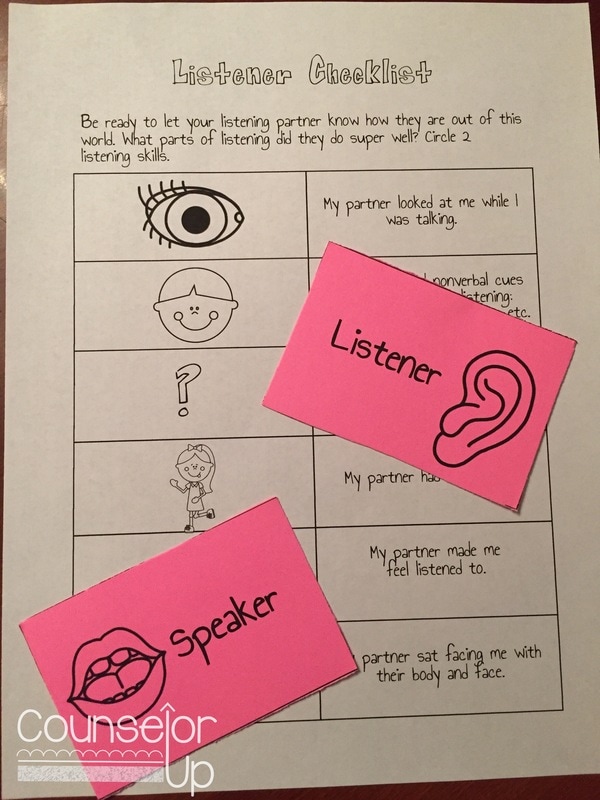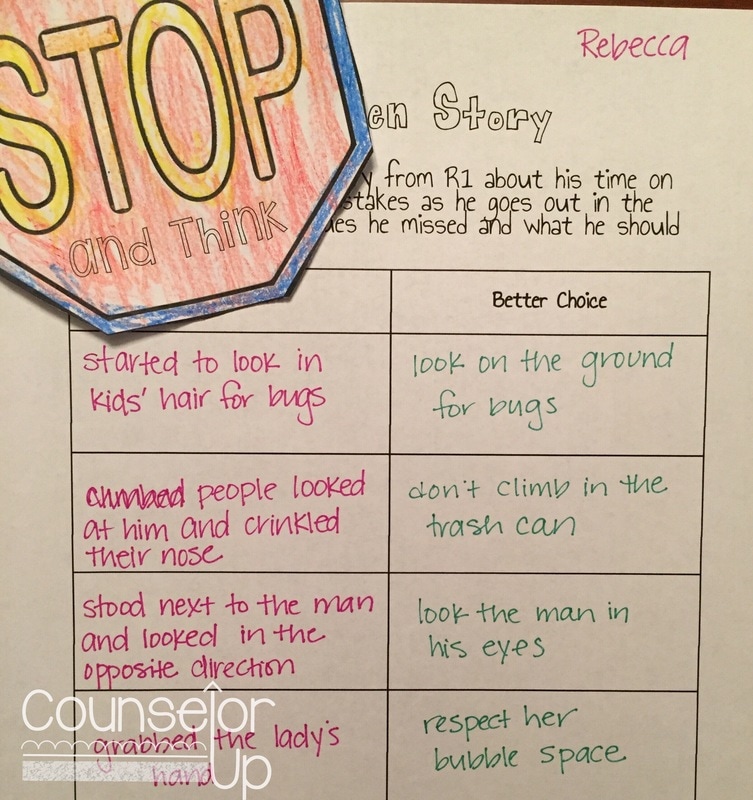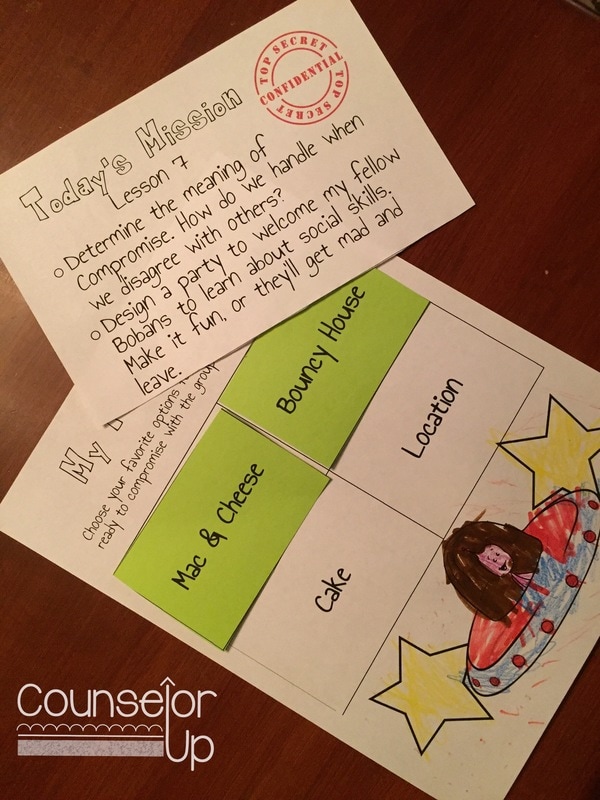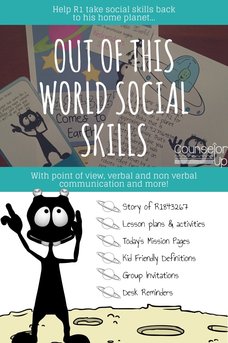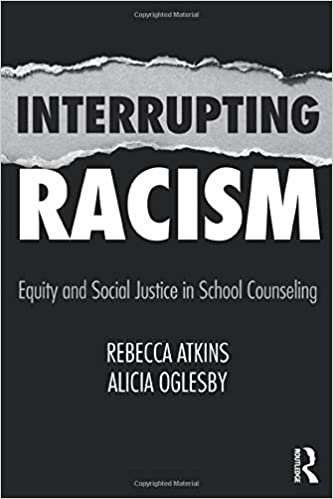|
I'm always looking for ideas that I can create ahead of time and grab in the moment. I want it to be quick but meaningful and ready for use. Enter Feelings Go Fish - print on cardstock, laminate, and get ready to use over and over. You can even make this yourself! Just cut up two copies of multiple feelings pictures from google searches and you're good to go. If you're not so into DIY, you can purchase the cards seen here on TpT. This can be a great ice breaker for a kid that needs some practice talking about their feelings. Each time you ask each other for a card - "Do you have a shocked friend?" - you are identifying the feeling on the card. You can also practice sharing a time that you have experienced that feeling each time you take a turn or make a pair. To help, I've created a poster that shows all the feelings on one page. Keep it posted in your room to reference each time you discuss feelings. I think it's fun to practice tone of voice of body language to "go fish." When I need an angry card, I can use an angry tone of voice or make an angry face. The other student has to guess which feeling I am showing and the let me know if they have that card. Playing games in groups is a great way to practice turn taking, managing frustration, and communication. Do you teach a lot of classes? Many of the counselors in my area teach on the specialist rotation (weekly) so they need a lot of lessons. That's a lot to plan! One idea is to create stations that kids can visit multiple times over the course of a few weeks. Most kids know how to play Go Fish so this station would need very little explanation. Just make sure to laminate those cards! Use the cards again to play a memory game, flipping over two cards at a time to find pairs. What fun game hacks do you have? Please share in the comments, I would love to hear! I always love to be creative with items I have so I don't have to store too much. Gotta be - Productive. Organized. Effective.
One of the hardest things about a job as a school counselor is juggling many different types of duties at once. I get a lot of questions about how to set up an elementary school counselor's schedule. I believe that it is really important to set a schedule early in the year so that you don't get pulled into too many things and realize it's January before you've started any groups. Sound familiar? Of course, crises and unexpected visitors of the grown up and kid kind are part of the job too. So how do you do it? Here's how I coordinate my schedule: 1. Set a yearlong calendar with the number of classroom lessons to teach in each grade level and a plan for topics to cover. 2. Create a weekly plan with groups to run, planned meetings, and other scheduled items. 3. Allow teachers to sign up for classroom lessons in a google doc . Because you've already scheduled your groups and put those in the google doc, you won't get double booked or realize that the one time a kid is available for a group, you have a class. 4. When your schedule is done, it will look something like this. You can fill in your individual counseling, parent meetings, teacher consults and all those other things you do in the empty slots. This has worked pretty well for me over the years. I like to be organized and know ahead of time what I am doing. The problem I fall into is having too many things scheduled. If your schedule is too full, you can't fit in enough responsive services to meet the needs in your school. How does scheduling work for you? I am lucky enough to not be on the specialist rotation at my school. If I were, I could likely do the same scheduling routine but it would be much harder to fit everything in. Good luck in the new school year! To read more: Calendars for Productivity and 5 Steps to a Yearlong Counseling Program. Have you heard??? You can sign up to be a Counselor Up VIP and receive a FUN FREEBIE plus updates and sales info before anyone else. Please join me, pinky promise there's no spam. This post was updated May 26th, 2017. School counselors work with all students and provide a variety of services. As more schools are aligning their efforts to the MTSS (multi-tiered system of support) model, it's important for counselors to be able to share how their work aligns with the school's system of support. Tier 1In Tier 1, or core instruction, counselors support social emotional learning and academic skills via the ASCA Mindsets and Behaviors. Tier 1 instructional practices include explicit instruction to 100% of student, across all settings. Instructional practices may be adjusted to reteach and differentiate based on student need. Of course, school counselors are not the only personnel to support core instruction. Discuss the ASCA Mindsets and Behaviors with school staff and determine the areas of need for all students. Once areas of need are determined, the counselor can consult with administration and grade level teams to develop a plan for implementation. Providing direct instruction of social emotional and academic skills is crucial for students to be successful both in school and post-graduation. We can't expect behavior and academic skills that have not been taught. Likewise, it isn't feasible for the school counselor to teach all of the social emotional and academic skills needed. An effective school counseling curriculum supports classroom learning of skills that are included in the instruction provided by the classroom teacher. Schoolwide initiatives like PBIS also fall into this tier because they provide the structure and expectations for all students. An effective core allows 80% of students to be on target. Tier 2In Tier 2, a second layer of strategic intervention is added. Students still receive core instruction but need additional support to be successful. Just like a math teacher will implement strategies to support students struggling to understand math concepts, students who struggle with social emotional learning or academic skills benefit from extra support. The key word here is strategic. As a school, how do you know a student needs more support with behavior? Do you wait until they come to the office with a discipline referral? How can you use data to intervene earlier? Discussion in Professional Learning Communities within your building may be a great place to start. These discussions may show patterns of student behavior. PLCs typically dig deeper into available data as well and can serve as a jumping off point for counselors. As counselors, you are already doing Tier 2 work but may find that increasing your strategic focus may help. In my last school, I worked with students who had a high number of absences, students who needed to improve their academic skills, and students who showed anxiety about middle school. I chose these strategic interventions because I looked at the data and knew what was needed. For counselors, Tier 2 can encompass work for a group of students that takes place individually. For instance, a behavior contract or Check-in/Check-out is a tier 2 intervention chosen for a group of students. Sometimes individual counseling can be a Tier 2 intervention, depending on the duration and intensity of the counseling. Meeting with a student 1-2 times about a friendship problem doesn't rise to the level of intensity that would be needed in a Tier 3 intervention. Tier 3Tier 3 interventions are intended for 1-5% of your student population. These kids are your super high flyers. Without additional supports, they can derail an entire classroom or grade level. Kids with Tier 3 support for behavior need a lot of help and most likely should be referred to an outside therapist. That doesn't mean there aren't Tier 3 interventions that counselors can put in place at the school! Tier 3 interventions are intensive, evidence-based instruction maximizing intensity, frequency, and duration. Interventions are progress monitored daily. Examples of Tier 3 interventions for counselors include FBA/BIP, suicide prevention, threat assessment, or collaboration and consultation with wrap around services for a child. So what instructional practices and interventions do you provide? How do they fit into the tiered model? I'd love for you to share!
School counselors and educators talk a lot about "developmentally appropriate" instruction. The ASCA Mindsets and Behaviors mention development 11 times in a 2 page document. Our NC Evaluation Standards state "applies theories and research about human development and student learning in counseling programs and services deisgned o enhance student success." But what does that actually mean? I am happy to introduce Syrenna Kononovitch from Online Counseling Programs to share lesson planning tips using psychosocial developmental theories. Syrenna is the editor and co-creator of the School Counselor ToolKit - a free supportive resource on all things school counseling. I think you'll love her post because not only does she dive deeper into developmentally appropriate lesson planning but she includes lots of links to great resources! Welcome Syrenna :) The theory of psychosocial development from infancy into adulthood proposed by Erik Erikson illustrates the psychosocial crisis of industry vs. inferiority in children from age five to twelve. During this development, children begin to learn to independently work and look to their teachers as role models. Friends become a larger influence in a child’s life as they may feel they need to win approval from others by demonstrating skills valued by peers. When children are reinforced in their competencies, they begin to feel industrious in their initiatives and thus confident in their abilities to achieve goals. If restrictions are placed, they will begin to feel inferior and doubtful of their own abilities. Maintaining a balance between the two is key and learning does require some failure. School counselors have surely seen both sides - the formation of a grandiose personality and students who feel inferior. School counselors can help to shape students' strengths, weaknesses, and behavior with counseling lesson plans on self-esteem, identity formation, and the development of social relationships. Self EsteemThe Missouri Department of Education provides school counselors with lesson plans specific to identity develop and increasing self-esteem for children in K-5 on identification of
Identity DevelopmentEmpowering students to continue to grow their own identity can be considered a staple to the school counseling profession. By integrating growth development and identity formation lessons into groups, individual sessions, and classroom guidance plans, students will be able to develop a positive sense of self. Using growth mindset lesson plans like My Monster Has a Growth Mindset can guide students in discovering their strengths and resilience by promoting positive alternative behaviors. Character education also provides students with an insight to positive attributes that they can take with them long after school is over. Kids of Character Posters can be used to have students think about what each trait means to them and why it’s a positive attribute to have. Character.org provides educators and school counselors with books to reference and suggested lesson plans on comparing character traits, determining what is negative and positive character, and illustrating their current positive attributes. Social RelationshipsWhen developing positive interpersonal relationships with others, students in the psychosocial industry vs inferiority development stage often turn to their peers as a first source of acknowledgment and acceptance. Students may experience jealousy, conflict, and engage in negative behaviors to gain the trust of their peers. Lesson plans that involve the social acceptance of oneself and others promote caring and kindness that are essentially the foundation for a child’s moral development. The 101 Ways to Teach Social Skills workbook provides lesson plans for aspects of social development on communication, being a part of a group, expression, caring about self and others, problem solving, standing up for yourself, and managing conflict. Beginning on page 75, the authors aim to provide planning on teaching skills such as empathy, positive social communication, helpfulness, respect, and making friends. Through these three components, school counselors can provide their students with the support and tools they need to become confident learners, friends, and members of society and school. Thanks for joining us today Syrenna! The best part? You, awesome readers, are already doing this work! Now you have the grad-school refresh to remind you the why behind the excellent work you do. What is your favorite resource or idea to support industry vs inferiority?
Get out of that social skill instruction rut. This lesson series is also great for special education teachers who have social emotional learning or behavioral goals to teach. I've created an 8 lesson group that uses an alien visiting from space to help kids to think about the importance of social skills and to practice using them. As always, I'll share all the lesson ideas here and if you'd like to purchase all of the materials ready-made, you can head on over to TPT. Each group begins with an inclusion activity that supports the skills introduced, a kid friendly definition of the skill, and a closure activity that wraps the group and checks for understanding. Skill: IntroductionIn the intro lesson to the group, we not only learn about the purpose of the group and read a story introducing students to R1, our friendly space alien, but we also have a chance to practice introduction skills with our new group members.
Skill: Verbal and Nonverbal CommunicationPractice verbal and nonverbal communication with a game of feelings charades. Each student draws a sentence and a feeling. Others have to guess the feeling they are showing with tone of voice, body language, and facial expressions. Once the group chooses the right emotion, take turns thinking about why someone might feel angry, friendly, or another emotion about the sentence read. Skill: ListeningStudents take turns listening and speaking about a generic topic. As the listener, they practice each of the listening skills introduced. Students give feedback to their partners about their strengths using a picture rubric and a supportive conversation. Skill: Stop and Think of ConsequencesIn this 2 lesson skill, students first practice the idea of stop and think by playing reverse Simon Says. The game is played just like the childhood game except "Simon Says" means that you *don't* complete the action. Poor R1, as an alien he misunderstands social cues all the time. In the second lesson, students listen to a journal entry about the day R1 comes to earth. He makes a lot of mistakes! Students write down the social clues he missed and then help him to correct them. Skill: CooperationIt takes communication and perseverance to cooperate. To practice, play "all tangled up." Students stand in a circle and grab someone's hand that is not standing next to them. To win, the group must untangle their hands without letting go. The most important part of this activity is the processing. Ask a lot of questions and encourage communication. Help students to think about what worked and didn't work in their process. Skill: CompromiseThis is a fun one! The group must work together to plan a party for R1's alien friends. Each student chooses a favorite for each of the 4 party planning tasks: food, activity, cake, and location. They must then negotiate and compromise with the others in the group to come to a consensus. This is a challenging lesson but the struggle is part of the learning! Skill: Summarize LearningIn the last session, the group partners up to create a presentation for R1 about one of the skills that they learned in group. They can choose to present about all of the skills or choose one skill to cover in depth. This is a great way to check for understanding and share some laughs.
I hope you have fun with your Out of this World Social Skills group! I think it will be a blast (rockets optional)! |
Rebecca AtkinsWelcome to my blog where I talk about all things school counselor and encourage others to Counselor Up! This website uses marketing and tracking technologies. Opting out of this will opt you out of all cookies, except for those needed to run the website. Note that some products may not work as well without tracking cookies. Opt Out of CookiesInterrupting Racism: Equity and Social Justice in School CounselingLinks may be affiliate links. If you link and purchase, I may receive compensation at no additional cost to you. Thanks for your support of Counselor Up.
Categories
All
Archives
July 2021
|
|
|

